
The Liberal Party was one of the two major political parties in the United Kingdom, along with the Conservative Party, in the 19th and early 20th centuries. Beginning as an alliance of Whigs, free trade–supporting Peelites, and reformist Radicals in the 1850s, by the end of the 19th century, it had formed four governments under William Ewart Gladstone. Despite being divided over the issue of Irish Home Rule, the party returned to government in 1905 and won a landslide victory in the 1906 general election. Under prime ministers Henry Campbell-Bannerman (1905–1908) and H. H. Asquith (1908–1916), the Liberal Party passed reforms that created a basic welfare state. Although Asquith was the party leader, its dominant figure was David Lloyd George.

The Ulster Unionist Party (UUP) is a unionist political party in Northern Ireland. The party was founded as the Ulster Unionist Council in 1905, emerging from the Irish Unionist Alliance in Ulster. Under Edward Carson, it led unionist opposition to the Irish Home Rule movement. Following the partition of Ireland, it was the governing party of Northern Ireland between 1921 and 1972. It was supported by most unionist voters throughout the conflict known as the Troubles, during which time it was often referred to as the Official Unionist Party (OUP).
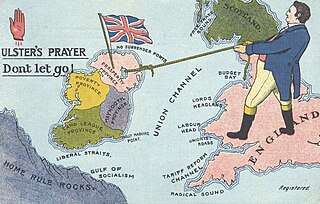
Unionism in Ireland is a political tradition that professes loyalty to the crown of the United Kingdom and to the union it represents with England, Scotland and Wales. The overwhelming sentiment of Ireland's Protestant minority, unionism mobilised in the decades following Catholic Emancipation in 1829 to oppose restoration of a separate Irish parliament. Since Partition in 1921, as Ulster unionism its goal has been to retain Northern Ireland as a devolved region within the United Kingdom and to resist the prospect of an all-Ireland republic. Within the framework of the 1998 Belfast Agreement, which concluded three decades of political violence, unionists have shared office with Irish nationalists in a reformed Northern Ireland Assembly. As of February 2024, they no longer do so as the larger faction: they serve in an executive with an Irish republican First Minister.
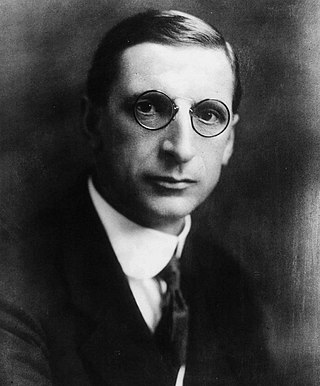
The Irish component of the 1918 United Kingdom general election took place on 14 December 1918. It was the final United Kingdom general election to be held throughout Ireland, as the next election would happen following Irish independence. It is a key moment in modern Irish history, seeing the overwhelming defeat of the moderate nationalist Irish Parliamentary Party (IPP), which had dominated the Irish political landscape since the 1880s, and a landslide victory for the radical Sinn Féin party. Sinn Féin had never previously stood in a general election, but had won six seats in by-elections in 1917–1918. The party had vowed in its manifesto to establish an independent Irish Republic. In Ulster, however, the Unionist Party was the most successful party.
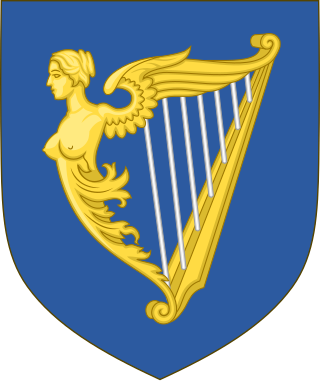
The Irish Parliamentary Party was formed in 1874 by Isaac Butt, the leader of the Nationalist Party, replacing the Home Rule League, as official parliamentary party for Irish nationalist Members of Parliament (MPs) elected to the House of Commons at Westminster within the United Kingdom of Great Britain and Ireland up until 1918. Its central objectives were legislative independence for Ireland and land reform. Its constitutional movement was instrumental in laying the groundwork for Irish self-government through three Irish Home Rule bills.

The Unionist Party was the main centre-right political party in Scotland between 1912 and 1965.

The 1918 United Kingdom general election was called immediately after the Armistice with Germany which ended the First World War, and was held on Saturday, 14 December 1918. The governing coalition, under Prime Minister David Lloyd George, sent letters of endorsement to candidates who supported the coalition government. These were nicknamed "Coalition Coupons", and led to the election being known as the "coupon election". The result was a massive landslide in favour of the coalition, comprising primarily the Conservatives and Coalition Liberals, with massive losses for Liberals who were not endorsed. Nearly all the Liberal MPs without coupons were defeated, including party leader H. H. Asquith.

The 1874 United Kingdom general election saw the incumbent Liberals, led by William Gladstone, lose decisively, even though their party won a majority of the votes cast. Benjamin Disraeli's Conservatives won the majority of seats in the House of Commons, largely because they won a number of uncontested seats. It was the first Conservative victory in a general election since 1841. Gladstone's decision to call an election surprised his colleagues, for they were aware of large sectors of discontent in their coalition. For example, the nonconformists were upset with education policies; many working-class people disliked the new trade union laws and the restrictions on drinking. The Conservatives were making gains in the middle-class, Gladstone wanted to abolish the income tax, but failed to carry his own cabinet. The result was a disaster for the Liberals, who went from 387 MPs to only 242. Conservatives jumped from 271 to 350. Gladstone himself noted: "We have been swept away in a torrent of gin and beer".

The Irish Unionist Alliance (IUA), also known as the Irish Unionist Party, Irish Unionists or simply the Unionists, was a unionist political party founded in Ireland in 1891 from a merger of the Irish Conservative Party and the Irish Loyal and Patriotic Union (ILPU) to oppose plans for home rule for Ireland within the United Kingdom of Great Britain and Ireland. The party was led for much of its existence by Colonel Edward James Saunderson and later by St John Brodrick, 1st Earl of Midleton. In total, eighty-six members of the House of Lords affiliated themselves with the Irish Unionist Alliance, although its broader membership among Irish voters outside Ulster was relatively small.

The 1995 North Down by-election, in the North Down constituency, was held on 15 June, following the death of James Kilfedder, who had represented the constituency since the 1970 general election. Kilfedder had formed the Ulster Popular Unionist Party in 1980, but the party disintegrated on his death.
The Catholic Union was a political organisation in Ireland in the 1870s. It was the brainchild of Paul Cullen, Roman Catholic Archbishop of Dublin and future Irish cardinal. He created it in 1872 to link growing public interest in politics and Irish nationalism with a Catholic agenda. It was his second attempt to create a Church-orientated political party, following the collapse and failure of his first such organisation, the National Association.
The Irish Conservative Party, often called the Irish Tories, was one of the dominant Irish political parties in Ireland in the 19th century. It was affiliated with the Conservative Party in Great Britain. Throughout much of the century it and the Irish Liberal Party were rivals for electoral dominance among Ireland's small electorate within the United Kingdom of Great Britain and Ireland, with parties such as the movements of Daniel O'Connell and later the Independent Irish Party relegated into third place. The Irish Conservatives became the principal element of the Irish Unionist Alliance following the alliance's foundation in 1891.
The Tenant Right League was a federation of local societies formed in Ireland in the wake of the Great Famine to check the power of landlords and advance the rights of tenant farmers. An initiative of northern unionists and southern nationalists, it articulated a common programme of agrarian reform. In the wake of the League's success in helping return 48 pledged MPs to the Westminster Parliament in 1852, the promised unity of "North and South" dissolved. An attempt was made to revive the all-Ireland effort in 1874, but struggle for rights to the land was to continue through to the end of the century on lines that reflected the regional and sectarian division over Ireland's continued place in the United Kingdom.
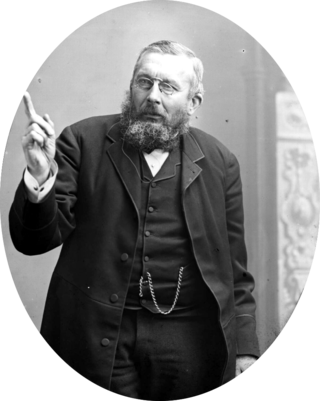
Joseph Gillis Biggar, commonly known as Joe Biggar or J. G. Biggar, was an Irish nationalist politician from Belfast. He served as an MP in the House of Commons of the United Kingdom of Great Britain and Ireland as member of the Home Rule League and later Irish Parliamentary Party for Cavan from 1874 to 1885 and West Cavan from 1885 to his death in 1890.

William Johnston was an Irish Orangeman, unionist and Member of Parliament for Belfast, distinguished by his independent working-class following and commitment to reform. He first entered the United Kingdom Parliament as an Irish Conservative in 1868, celebrated for having broken a standing ban on Orange Order processions and as the nominee of an association of "Protestant Workers". At Westminster, Johnston supported the secret ballot; the accommodation of trade unions and strike action; land reform; and woman's suffrage. He was succeeded in 1902 as the MP for South Belfast, by Thomas Sloan, similarly supported by loyalist workers in opposition to the official unionist candidates favoured by their employers.

Thomas Henry Sloan (1870–1941) was an Irish unionist and co-founder of the Independent Orange Order (IOO). The choice of a loyalist workers association over the official Conservative Unionist nominee, he represented the Belfast South constituency as an Independent Unionist at the Westminster parliament from 1902 to 1910. He and members of the IOO supported workers in the Belfast Lockout of 1907.
Samuel MacCurdy Greer (1810–1880), was an Irish politician who, in Ulster championed Presbyterian representation and tenant rights. He was a founder member of the Ulster Tenant Right Association and of the all-Ireland Tenant Right League. In the general election of 1857 he was returned to Westminster on a tenant-right platform for County Londonderry.
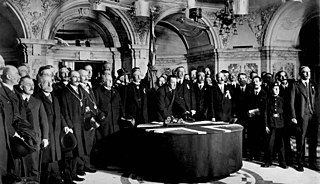
The Home Rule Crisis was a political and military crisis in the United Kingdom of Great Britain and Ireland that followed the introduction of the Third Home Rule Bill in the House of Commons of the United Kingdom in 1912.

The 1870 Londonderry City by-election was held on 15 February. It was a ministerial by-election, triggered by the appointment of Liberal Party member of parliament Richard Dowse as Solicitor-General for Ireland. The election was strongly contested by the Irish Conservative Party at a time when such by-elections were increasingly unchallenged. During this period the Catholic population of Londonderry tended to support the Liberals while the Protestant population supported the Conservatives. Dowse won, with a slightly reduced majority, and the result has been cited as evidence for the increasing co-operation between Episcopalian and Presbyterian voters in Ulster.
The 1860 Londonderry City by-election was held on 2 April following the 13 March 1860 death of the incumbent, the Liberal Party's Sir Robert Ferguson. Ferguson had held the seat since 1830 and had received significant support from the Catholic segment of the constituency. The Liberal Party's candidate Samuel MacCurdy Greer had counted on this support transferring to him, however the Irish Conservative Party's candidate William McCormick, who employed a significant number of Catholic workers, managed to split the Catholic vote. The Liberal Party's Presbyterian support had also been adversely affected by their defeat to the Tories in Londonderry County in 1857, which led many to withdraw from politics.
















